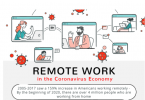aNewDomain.net — When Microsoft releases Windows 8.1 — the final is due possibly this month — it will be a milestone moment for the tech leader. Until now, Microsoft has always had the luxury of releasing a new operating system every three or four years, and the luxury of turning each release into an event.
The leap from Windows 3 to Windows 95 took five years. Microsoft took six years to move from Windows XP to Vista.
Of course, I’m not counting Microsoft moving from Windows 3.0 to 3.1 in a matter of weeks — that was just a bug-fix release, anyway.
That said, what I want to know is — why is Microsoft tightening the life cycle of its flagship product now?
Well, there’s competition. Microsoft hasn’t had serious competition in decades. It does now — and that competition, coming from Apple, Google and a variety of open-source vendors, has been upgrading and improving its software like crazy.
Take Google. Google is legendary for its constant and incremental improvements to its browser OS Chrome, the browser itself and, of course, its monster mobile operating system, Android.
Google updated Android 11 times in the time it took for Microsoft to update Windows 7 to Windows 8.
As for Chrome, Google improves that without the consumer even being aware of it. There’s no announcement and no lines around the block like there were for, say, Windows 95.
Think about 1995 for a moment. At a time when few people outside the IT houses and Silicon Valley had any idea what an operating system was, tens of thousands of computer enthusiasts around the world camped out in front of stores so they could be among the first to buy Windows 95. This was Microsoft’s overhauled version of the Windows operating environment that ran on DOS — and its first step toward integrating both to something that consumers might use.
The hooplah was huge. The Rolling Stones were brought in for the launch party — prompting that band’s first sell-out. “Start Me Up” became the Microsoft circa 1995 album.
Back to the issue, part of the pent-up excitement had to do with the fact that Microsoft had waited five years after Windows 3.x to do this major upgrade. What we got was a late-to-market operating system where everything — including Shut Down — could be launched from one button, the Start button.
Strange but true.
Feedback avenues have changed a lot since then. Gone are the days when techies only had computer clubs and Internet bulletin boards (BBSs) to share their joys and frustrations about computers. For the vast number of computer users, the only opinion of their computer came from their experience and perhaps from a handful of pundits and columnists that worked in the trades or mainstream media.
That was it.
What with the Internet, information distribution now has flattened. Everyone gets a much-wider reach to broadcast their own opinions and read those of others.
It doesn’t take long now to reach a general consensus on the success or failure of pretty much anything — and that includes an operating system.
Success is measured in more than sales. It’s also measured in the collective zeitgeist of a particular user base.
That defining mood about a product or service gets to Microsoft HQ in Redmond, Wash. in no time.
Microsoft often responds to criticism from bloggers, like it recently did after eliminating the most-famous Start button in history. Then Windows Live president Steven Sinofsky said, “We’ve seen some small amount of visceral feedback focused on ‘choice’ or ‘disable’ — a natural reaction to change, but perhaps not the best way to have a dialogue leading to a new product.”
Marina Dukhon, a senior program manager lead on the Core Experience team wrote, “Based on your feedback, one of the things that we’re doing to make it faster to get to All Programs is to take you directly to the Apps screen when you click Search in the desktop.”
If Microsoft can iterate an improved operating system based on user feedback, it will move from a model where it creates events around improvements to one where its users steer the direction of the OS based on their needs — and it will be doing it at a much faster clip.
Based in New York, Dino Londis is a senior commentator at aNewDomain.net. He’s also an IT Pro alum at National Lampoon and teamBYTE. Email him at Dino@aNewDomain.net.














